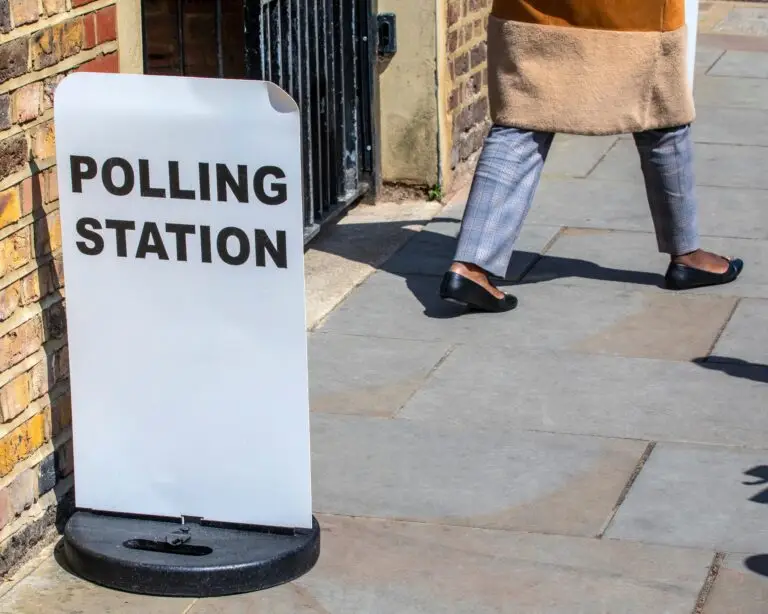Tiffany Beck, Head of Education
Last week saw the annual Festival of Education at Wellington College, and it felt exactly that – like a festival. Spurred by the brilliant sunshine, the vibe across the festival was bright, celebratory, contemplative, thought-provoking, inclusive and friendly.
As always there was a vast array of sessions available to choose from, with some highlights including:
- Schools Week’s editor John Dickens interviewed Ofsted’s Amanda Spielman, ahead of the end of her term as His Majesty’s Chief Inspector at the end of this year. Spielman wouldn’t get drawn into commenting on what one-word judgement she would give to her tenure or on Labour’s proposals for the inspectorate, other than to say proposals for safeguarding to be taken out of inspections and put into a cycle of annual reviews would be very expensive. However, she did share advice for her as-yet-to-be-named successor: ‘listen a lot… go around and talk to people as much as you can and listen to everybody’.
- The impact of high workload for teachers was mentioned throughout a number of sessions, with one session in particular looking at what might be the ‘silver bullet’ for reducing it. Key recommendations included sensible feedback and marking policies, supporting leaders in their roles and really taking flexible working seriously.
- Flexible working was itself a theme throughout various sessions, as a key strategy to aid recruitment and retention in the post-pandemic world. Whilst it was acknowledged it’s not as straightforward to implement in schools as in other organisations, there are options to consider, for instance rather than taking a one-size-fits-all approach to flexible working, assessing instead what is feasible within individual roles.
- In a session on what a strong multi-academy trust looks like, Stuart Gardner, chief executive of Thinking Schools Academy Trust, emphasised the importance of depth rather than breadth for accountability measures.
Lastly, the Festival coincided with the Labour Party’s launch of its opportunity mission, which gave insight into what education under Labour might look like. Whilst some key policies were discussed and debated, the overall consensus was for a need to wait and see the detail. Perhaps no surprise after the sector has seen ten Education Secretaries in the 13 years since Labour was last in Government. What was clear throughout the Festival was education leaders will do what they always do regardless – carry on focusing every day on delivering what is in the best interests of the children and young people in their schools and colleges.
Isabella Perales, Account Director
Day one of the 13th Wellington Festival saw some of the biggest and brightest from across the education sector come together to reflect on the year gone by, and the years ahead. While you could say this hasn’t been a quiet year for the sector, the Festival was full of life and enthusiasm for an integral piece of society’s puzzle.
With a huge number of sessions to choose from, attendees were spoilt for choice. While we know there is much to do to support schools, and ensure that the myriad challenges this part of the sector faces are resolved, it is clear that Wellington isn’t just about primary and secondary education.
A session on how schools flow into Further Education (FE) and Higher Education (HE) was a prime example of that. The Skills Imperative – from here to 2035 was hosted by National Foundation For Educational Research (NFER), which is undertaking research on employability skills. The session included a panel discussion with representatives for schools, FE and HE, and highlighted the need for institutions at all levels to provide the tools to build six essential employment skills: collaboration; communication; creative thinking; information literacy; organising, planning and prioritising; and problem solving and decision making. The panellist suggested all these skills are needed in almost all occupations, and therefore need to be a central part of teaching and curriculum design. They even suggested that a limited supply of these skills is likely to hold back economic growth.
A session on Early Years saw Brett Wigdortz, founder of Teach First, discuss his new early years initiative, Tiney.co, which is the biggest childminding agency in the country. Wigdortz proposed a clean solution to the workforce crisis in the early years sector. Childminders used to make up a huge part of the sector, with 100,000 registered in 2000. Now there are just 23,000 registered. He is calling for an expansion to the childcare workforce through childminding, which he says has the potential to make up the deficit currently experienced in the sector.
While there were many interesting sessions, these two alone demonstrate the breadth of the education sector, and the crucial impact it can have on young people’s life chances, from early years through to further and higher education.
Luke Walpole, Account Director
Even though the sun was shining on the festival’s second day, there were some undeniably gloomy topics to discuss. From Ofsted and accountability to teacher retention and crumbling school estates, there are clearly some immense issues facing the sector. Yet the response of the assembled speakers and attendees was constructive, perhaps even bullish. With speakers ranging from multi-academy trust CEOs to charity leaders, exam board officials, politicians and more, the Festival delivered a practical melting pot of ideas.
Moreover, there was a healthy eye on the future. The day was packed with talks about sustainability, and the ways in which ‘green’ financing, technologies, and curricula could impact education for the better. If we take to one side the frankly eye-watering sums discussed by Department for Education officials (£44bn to replace every schools’ boilers with sustainable alternatives, for instance), and the barriers which are obstructing central government from fully supporting the sector to ‘go green’, the schemes and projects described by many speakers were both hopeful and tangible. Above all, they reflected a sector which was energised by the prospect of driving real change.
Of course, real change has already reached the gates of schools, colleges, and universities, through the growth of Artificial Intelligence; a topic that seemed to elicit both excitement and concern. There were worried whispers from some education professionals, concerned about plagiarism and the shortcuts programmes like ChatGPT can provide for disengaged students. Yet the louder voice was arguably that which depicted AI as a means of lessening teachers’ workload, diagnosing pupils’ blindspots and proactively putting in place tailored plans to help them.
A day of extremes, then. A clarion call for central government support and new ideas to rethink long-standing issues, and a thoughtful, stimulating vision for the future of education.






